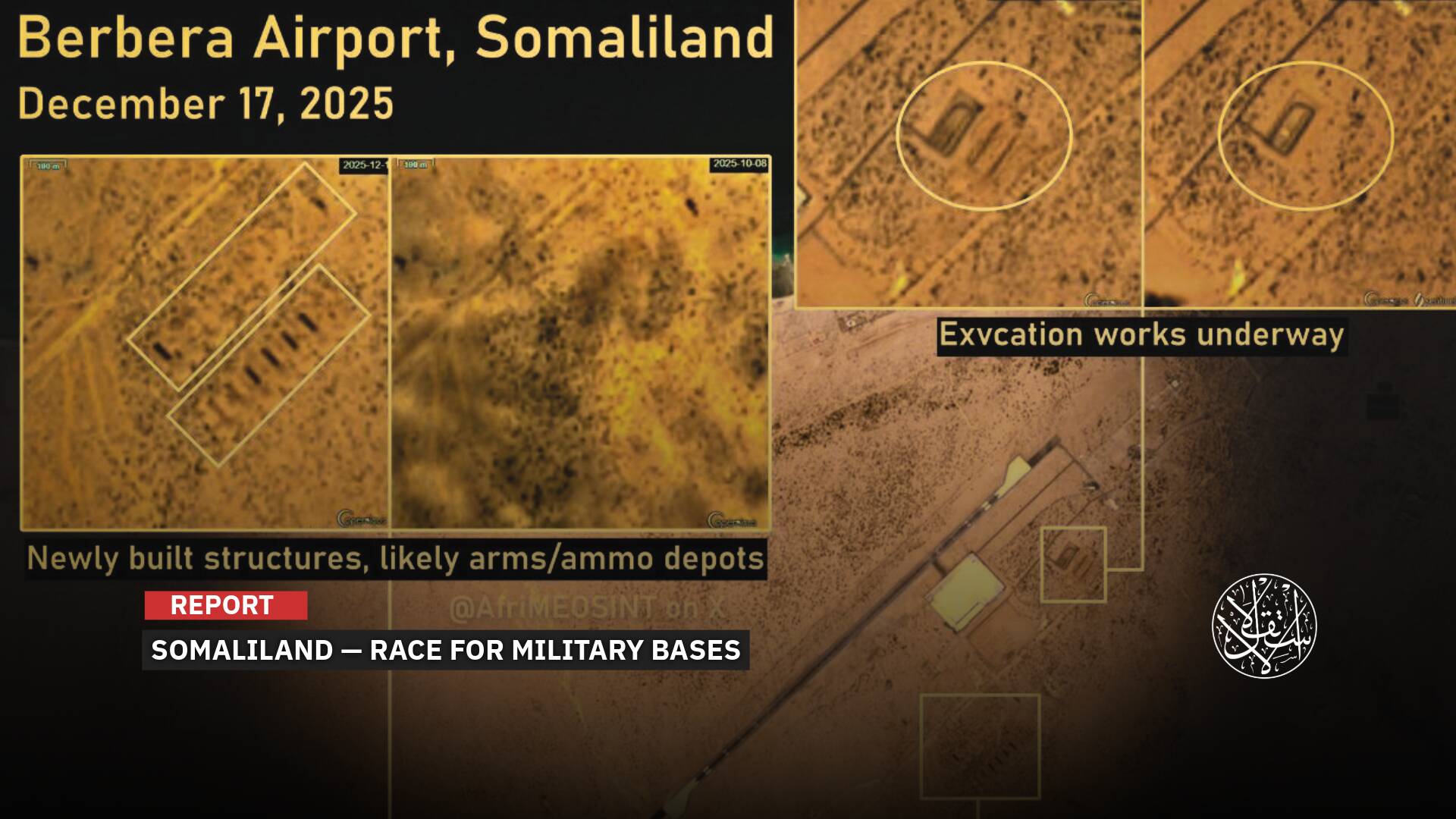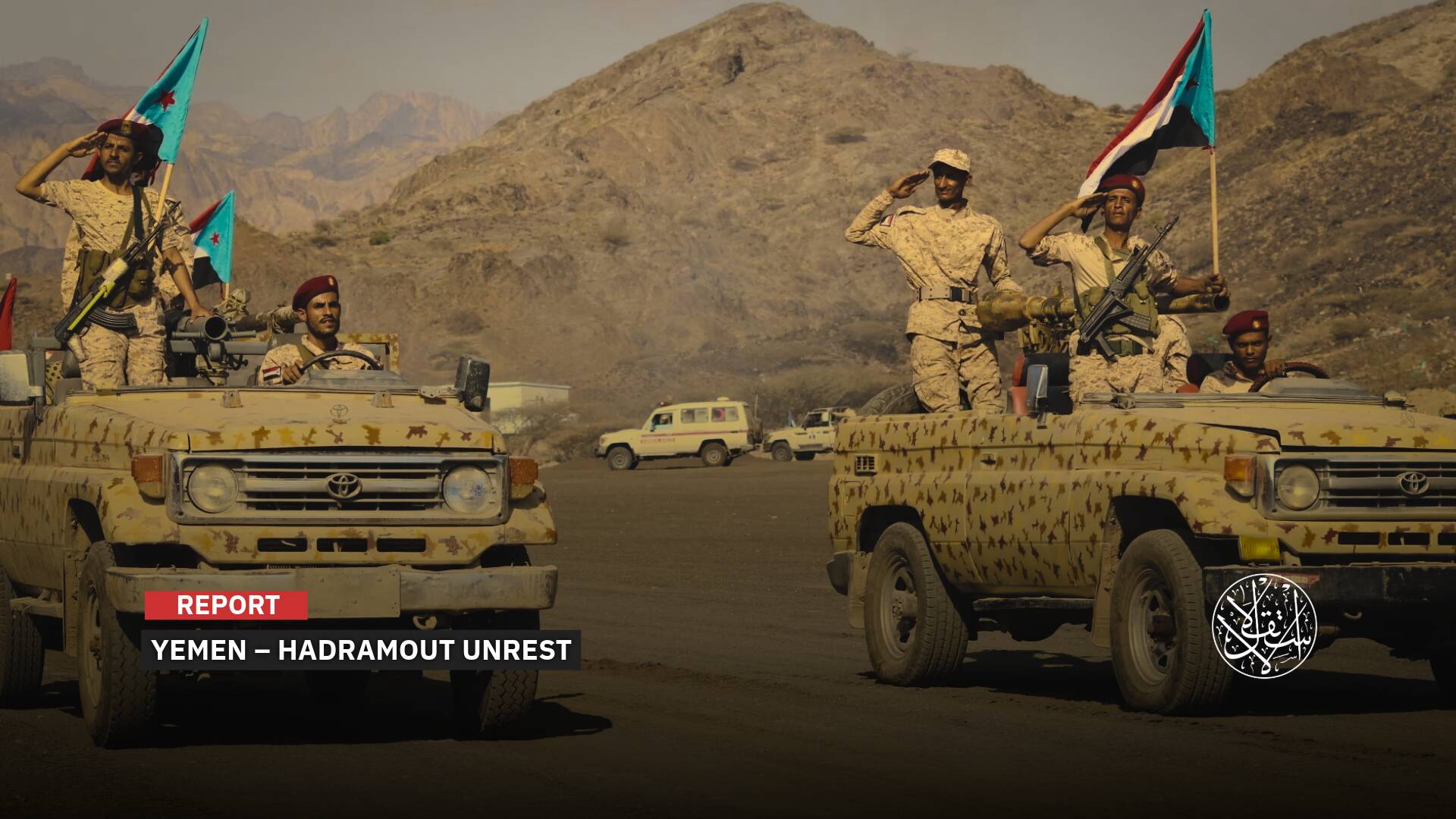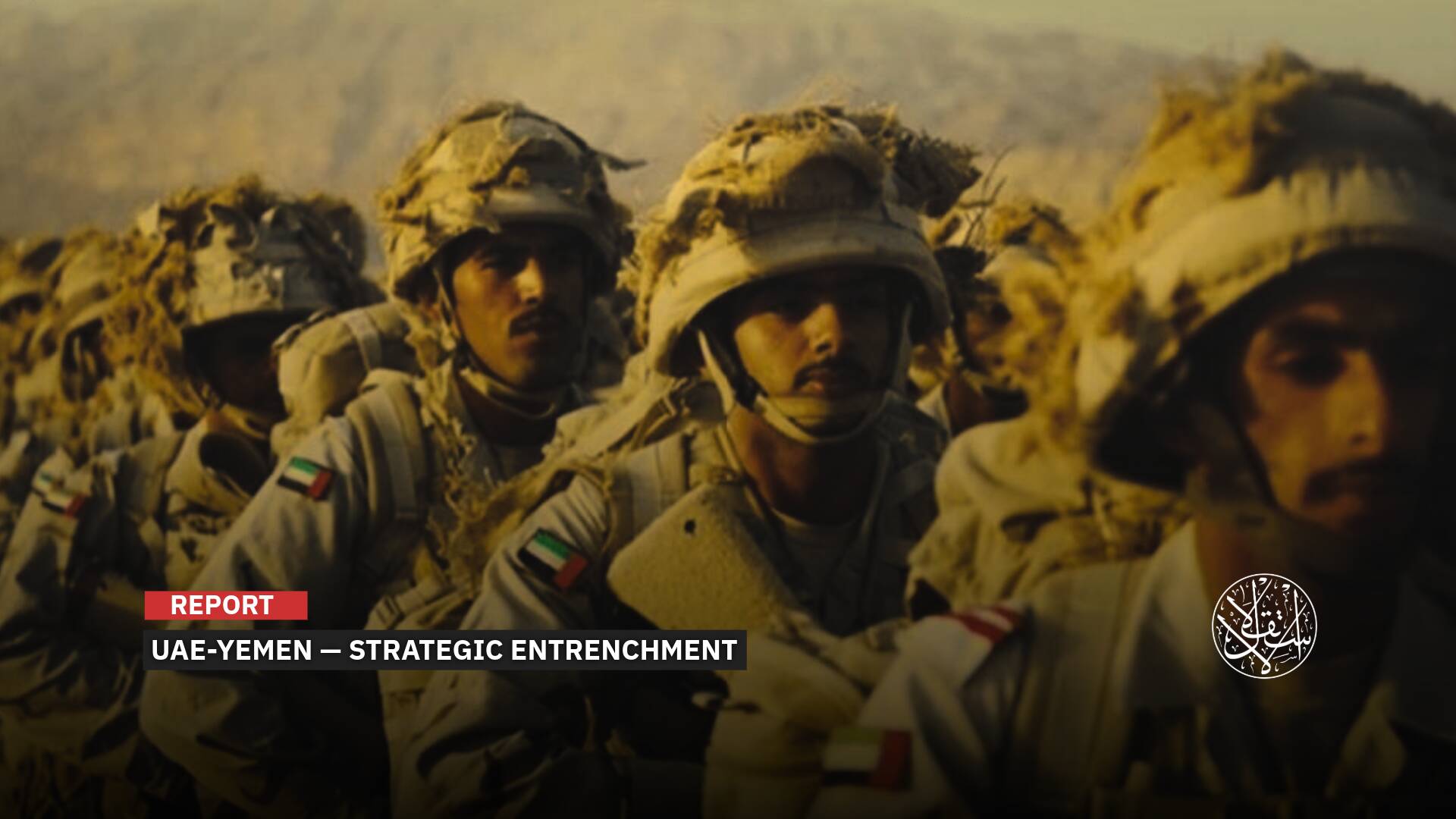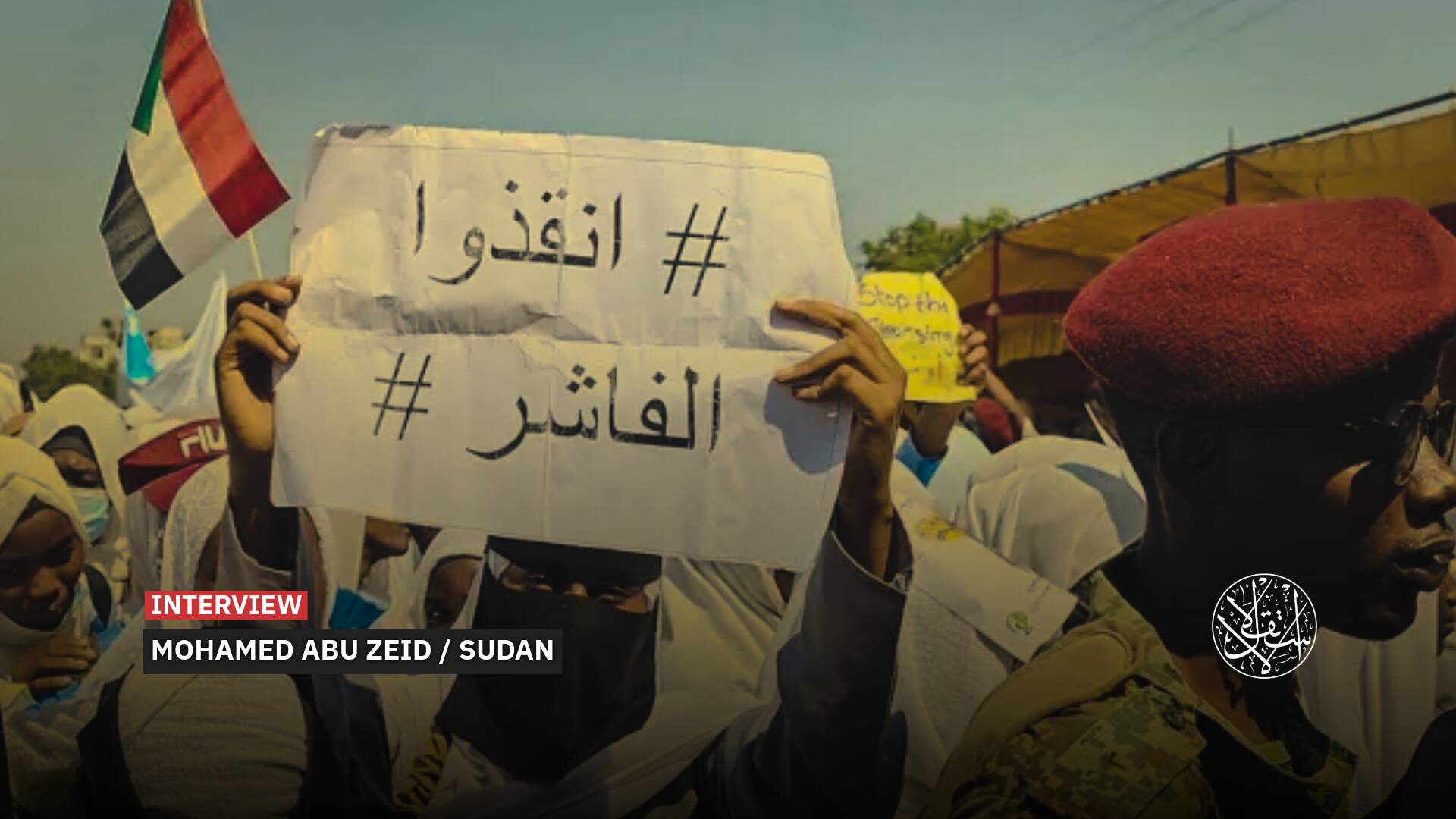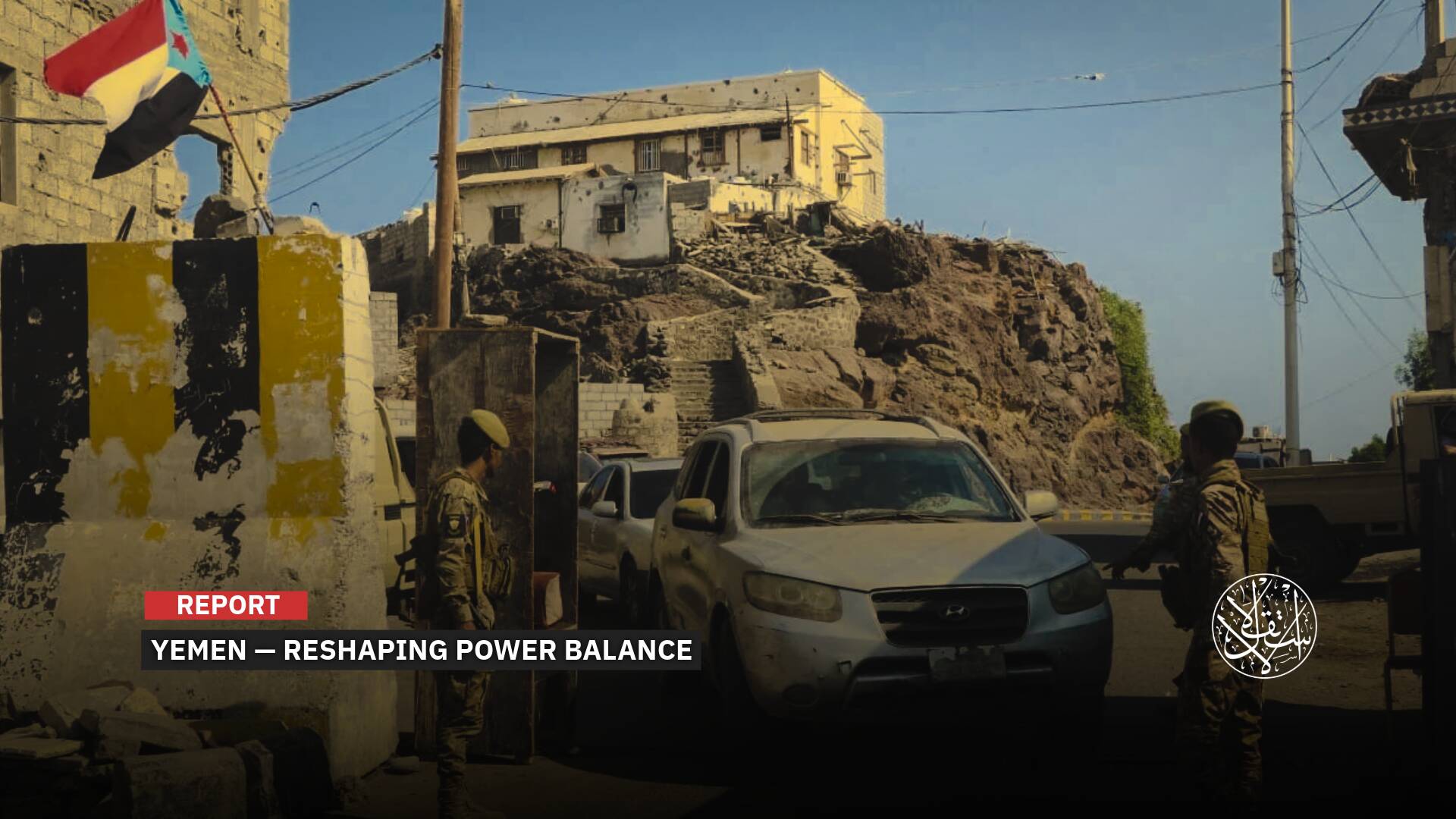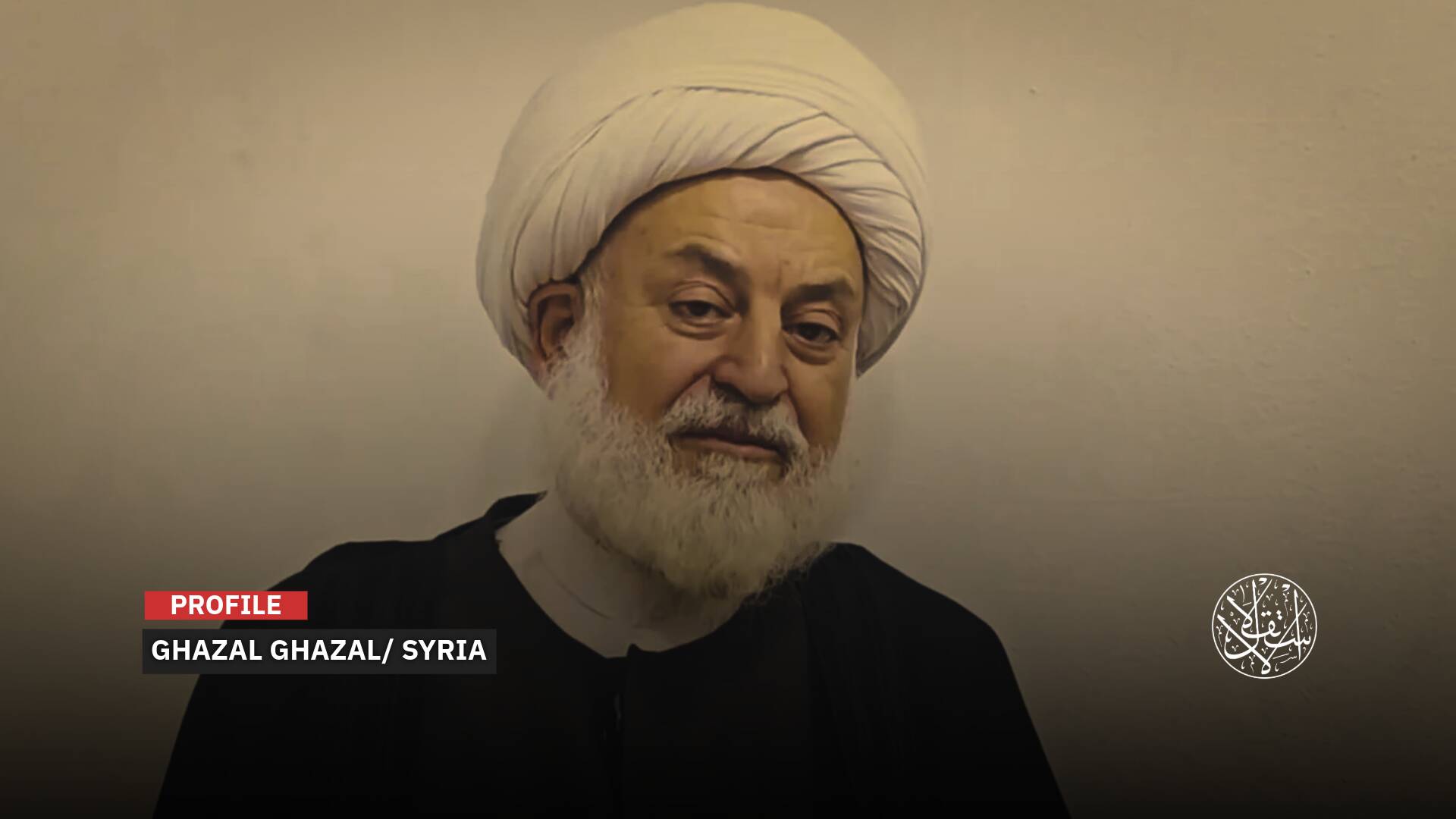Sea of Friendship 2025: How Worried Is Israeli Occupation About Egypt–Turkiye Military Cooperation?
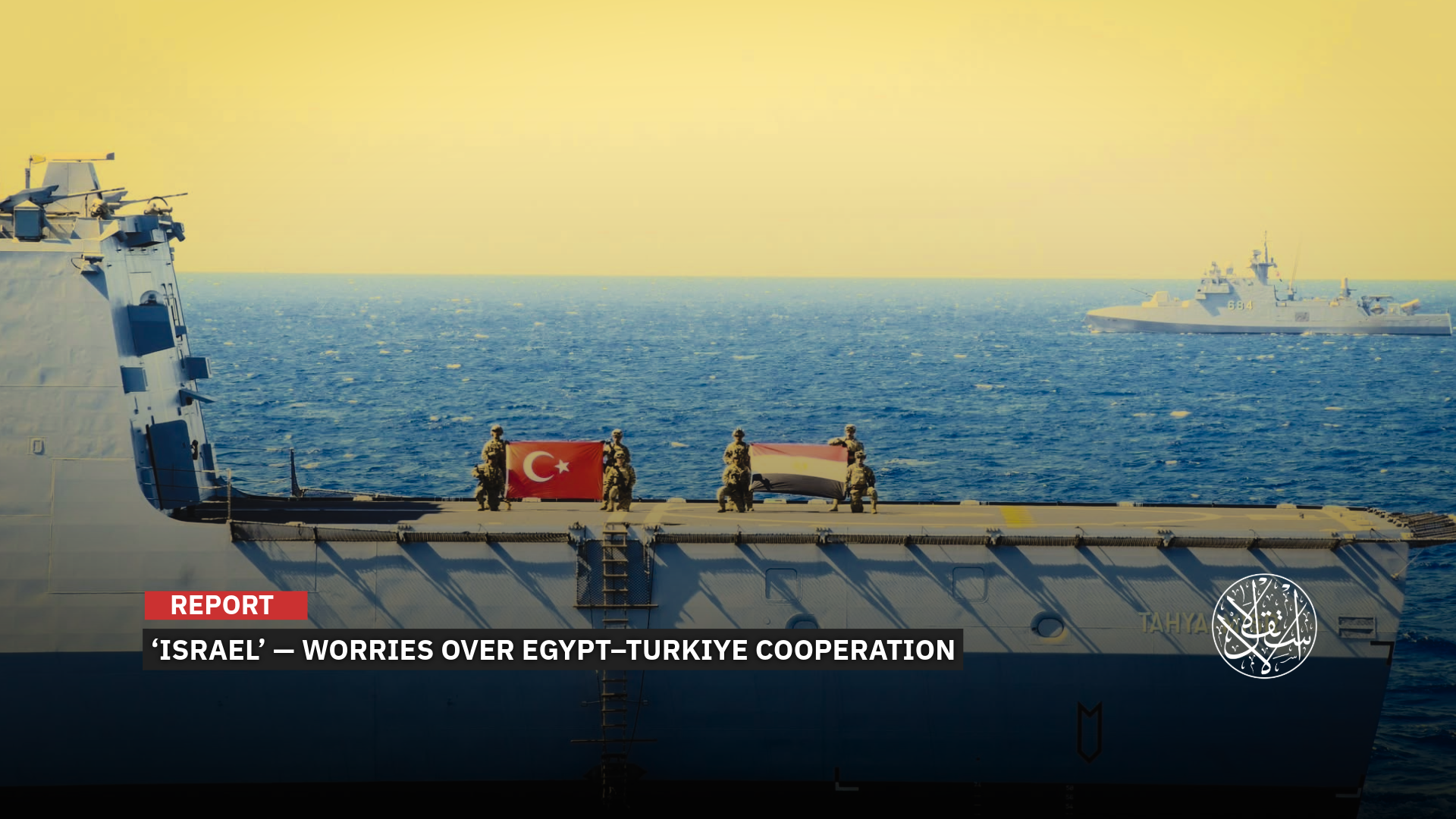
"Cairo and Ankara have decided to use hard-power measures to restore balance in the Eastern Mediterranean."
The arrival of the first Egyptian soldier at Turkiye’s Aksaz naval base on the Mediterranean coast after a thirteen-year absence represented more than the mere resumption of drills halted in 2013.
The Marmaris base, one of Turkiye’s key naval hubs in the Mediterranean and a strategic tool for monitoring shipping lanes, has become the stage for a regional event whose impact goes beyond routine training.
The Israeli Occupation, closely observing the revival of Egyptian-Turkish military cooperation, recognizes that the presence of frigates, submarines, and fighter jets in Sea of Friendship 2025 is more than an exchange of tactical expertise.
It reflects a political and security rapprochement between Cairo and Ankara amid a tense regional environment marked by the Israeli genocide in Gaza, escalating Tel Aviv attacks, the forced displacement of Palestinians, and the targeting of faction leaders in both Egypt and Turkiye.
Sea of Friendship 2025
On September 19, 2025, the Turkiye Ministry of Defense announced that Sea of Friendship 2025 would feature a high-level observation day attended by senior naval commanders from both countries, highlighting the significance Ankara and Cairo attach to the exercises after more than a decade of strained relations.
In Cairo, Egyptian military spokesperson Colonel Gharib Abdel Hafiz explained that the drills include intensive lectures and maritime activities designed to sharpen skills and operational efficiency. The exercises aim to unify combat concepts and enhance the ability to conduct complex naval operations according to the highest international standards. He added that the maneuvers are part of a broader plan for Egyptian military cooperation with allied and friendly nations across various disciplines.
Sea of Friendship drills date back to 2009 and ran annually until 2013, when political tensions halted them. In their early years, they symbolized reconciliation and coordination between Cairo and Ankara, focusing on operational synchronization and unified tactics in the Mediterranean.
This year, the Turkiye navy is contributing two frigates, TCG Giresun and TCG Gediz; two attack boats, TCG Imbat and TCG Bora; a submarine, TCG Gur; and two F-16 fighter jets. The Egyptian navy is deploying key vessels, including the frigates Tahya Misr and Fouad Zakry, which docked at Aksaz to play a central role in this high-profile military exercise.
Israeli Concerns
Inside “Israel,” the announcement of renewed naval drills between Cairo and Ankara has sparked a wave of worried commentary across media and academic circles.
Prominent Israeli analyst Mordechai Kedar, a leading researcher on Arab culture, argued that Egypt is now more than ever compelled to clarify its strategic choices.
Speaking on the Hebrew channel program “This Evening,” Kedar said Egypt must decide clearly: is it with “Israel” or with Hamas? It cannot continue sitting on the fence, one foot here and one there. At the same time, it acts as a mediator in negotiations over captives while being accused of turning a blind eye to weapons and vehicle smuggling into Gaza.
“This duality is no longer acceptable. Cairo must choose: will it side with what we consider Hamas terrorism or with the Israeli peace process?”
Kedar’s words carried signals beyond a mere assessment of Egypt’s position, reflecting deep Israeli concern that the restoration of military cooperation between Egypt and Turkiye could indicate a regional realignment at odds with Israeli Occupation interests.
For “Israel,” Egypt has not only been a neighbor bound by the Camp David Accords but also an implicit security partner in managing Gaza and controlling the border.
Yet Cairo’s recent actions, from deploying large forces in Sinai to participating in advanced exercises with the Turkish navy, suggest to “Israel” that Egypt may be seeking to strengthen its regional leverage independently of traditional security coordination with Tel Aviv.
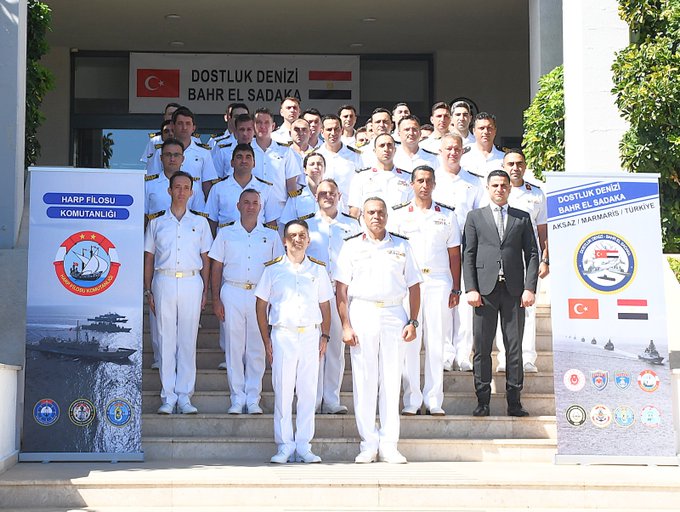
A New Trajectory
Maariv offered a similar reading, describing the exercises as part of a broader strategy by President Recep Tayyip Erdogan to position Ankara as a central power in the Middle East following the decline of Syrian influence after Bashar al-Assad’s regime lost control over large areas.
The paper noted that Egypt is no longer hesitant to engage in this path, highlighting Cairo’s recent willingness to act militarily and politically with greater independence. This has been evident in its strengthened presence in Sinai and in its public opposition to plans for the mass displacement of Palestinians from Gaza.
While the Israeli Occupation portrays this shift as a direct threat, the reality suggests that the renewed Egyptian-Turkish cooperation in the Mediterranean sends multilayered signals. On one hand, it reflects bilateral rapprochement after a decade of estrangement. On the other, it clearly demonstrates that Cairo and Ankara have decided to leverage the regional moment to rebuild their shared influence.
This comes at a time when Tel Aviv faces the pressures of its genocide in Gaza, rising international scrutiny, and growing doubts over the stability of its relations with Arab states, particularly after it bombed Doha on September 9, 2025.
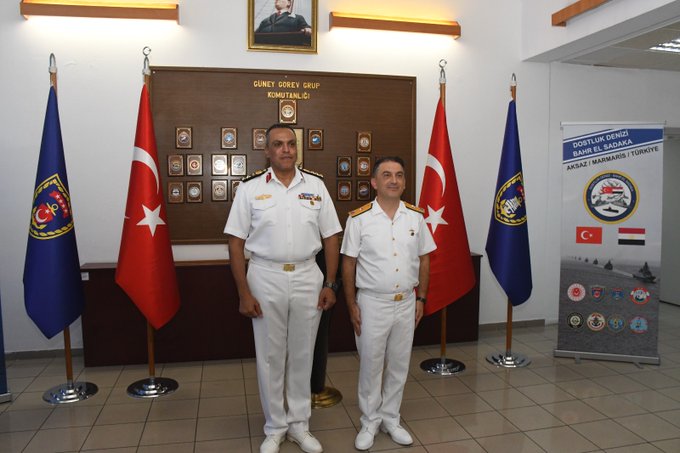
Conflict on the Horizon
The Egyptian-Turkish military exercises and coordination cannot be viewed in isolation from the recent intensification of tensions between Cairo and Tel Aviv.
A September 23 assessment by the U.S. strategic and security think tank Stratfor noted that the unprecedented Egyptian military buildup in the Sinai Peninsula does not indicate that Cairo is moving toward a full-scale confrontation with “Israel,” but it increases the likelihood of some form of conflict and sporadic border incidents in the coming months.
In late August 2025, Egypt deployed around 40,000 troops to Sinai in a move partially coordinated with the Israeli Occupation military ahead of large-scale aggression in Gaza.
This force, far exceeding the 26,000-soldier ceiling stipulated in the Camp David Accords, alarmed Tel Aviv. Prime Minister Benjamin Netanyahu reportedly urged U.S. Secretary of State Marco Rubio, during his mid-September visit to “Israel,” to pressure Egypt into reducing its military presence.
Despite partial coordination, Israeli circles view Cairo as having violated the treaty by developing prohibited military infrastructure, including expanded runways potentially usable by fighter jets and underground facilities likely intended for missile storage.
Stratfor added that throughout the war, Cairo has insisted that any Israeli plan for the forced displacement of Palestinians toward Sinai constitutes a “red line.” Some estimates suggest that Israeli aggression aimed at controlling Gaza City and surrounding refugee camps could push up to one million Palestinians toward the Egyptian border, explaining Egypt’s heavy military buildup and its external arrangements, including closer cooperation with Turkiye.
Since Hamas’s October 7, 2023, operation, Netanyahu has shown a willingness to escalate militarily despite international condemnation, heightening Egyptian concerns that the crisis could spill over its borders.
At the emergency Arab League summit in Doha on September 14, the head of the Egyptian regime, Abdel Fattah el-Sisi, described the Israeli Occupation as “the enemy,” marking an unprecedented shift from Cairo’s traditional rhetoric. Diplomatic tensions escalated further after Netanyahu’s statements that “Israel” would pursue Hamas leaders “anywhere,” raising questions about the potential extension of Israeli attacks into Egyptian territory despite Cairo’s role as mediator in ceasefire and prisoner exchange talks.
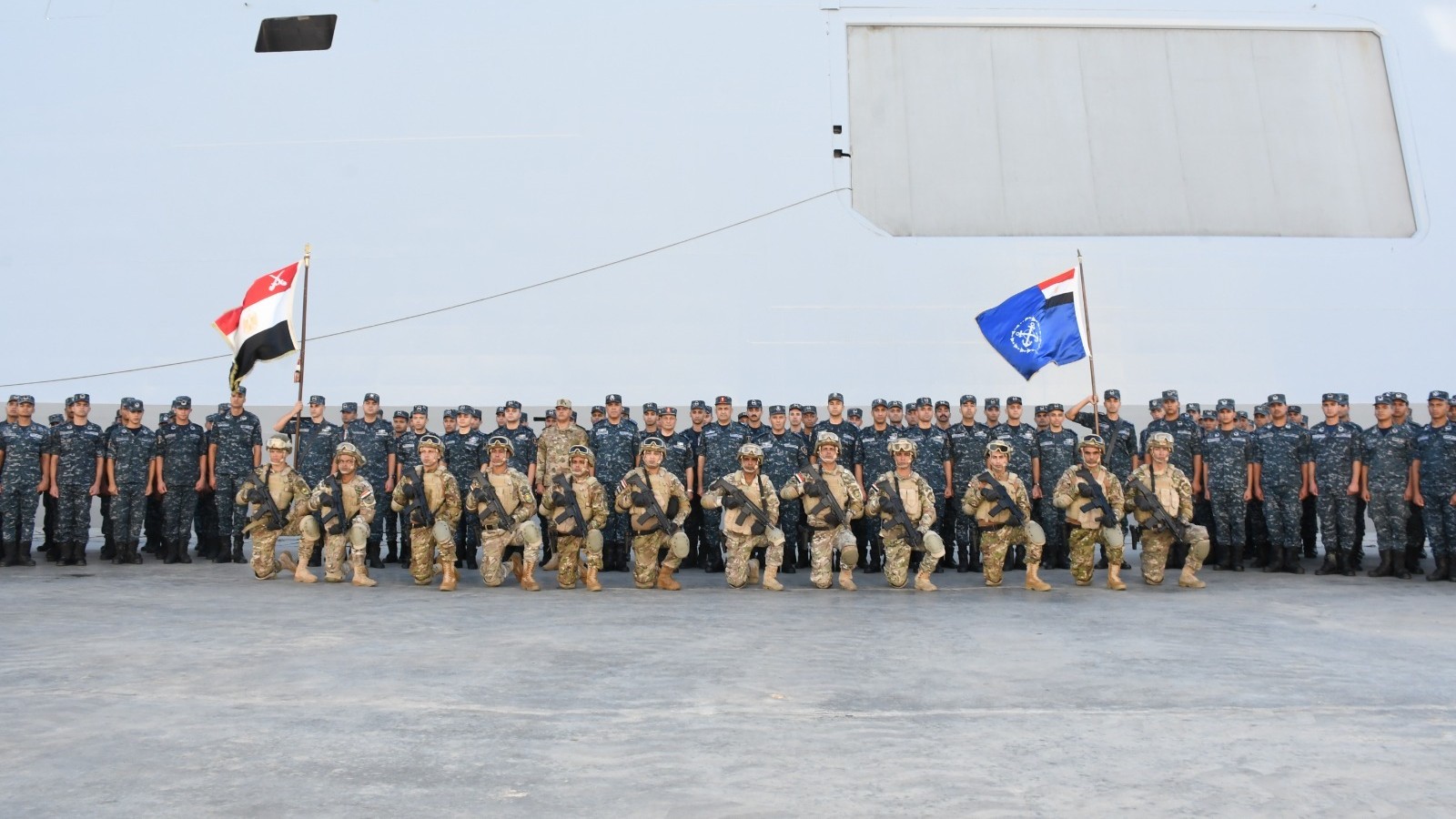
A Regional Axis
Commenting on these developments, Egyptian journalist and member of the Egyptian Writers’ Union, Amer Hassan, said that the naval drills between Cairo and Ankara cannot be seen as mere routine military training. Rather, they signal the emergence of a new regional axis reshaping the balance of power in the Eastern Mediterranean.
“The revival of military cooperation between Egypt and Turkiye after more than a decade of estrangement comes at a pivotal moment, as Gaza burns under Israeli aggression, international pressure intensifies, and proposals for the mass displacement of Palestinians are openly discussed,” he told Al-Estiklal.
“This rapprochement strengthens both countries’ influence in the regional balance, presenting Israel with a double challenge: it risks losing its naval dominance while confronting a new axis that engages it on more equal footing, especially over gas, maritime security, and Gaza’s future.”
“Sea of Friendship now carries an indirect message that Cairo and Ankara have decided to employ hard-power measures to restore balance in the Eastern Mediterranean at a time when Israel faces increasing political isolation, mounting security exposure, and evident difficulties in managing its ongoing war on Gaza,” Hassan added.
This, according to the journalist, underpins the Israeli Occupation’s growing concern over the exercises and their potential long-term strategic implications.
Sources
- Is an Israel-Egypt Conflict on the Horizon?
- Egypt and Turkiye Conduct Naval Drills: Why Now? [Arabic]
- Sea of Friendship 2025: Timing, Implications, and a Possible Egypt-Turkiye Strategic Alliance [Arabic]
- Egypt-Turkiye Exercises: Rapprochement Raises Concerns in Israel and Greece, Monitored Closely by NATO [Arabic]
- Egyptian Troops Arrive in Turkiye for the First Time in 13 Years [Arabic]
- Turkiye and Egypt: Strategic Partnership in Defense Industries and Naval Exercises [Arabic]


